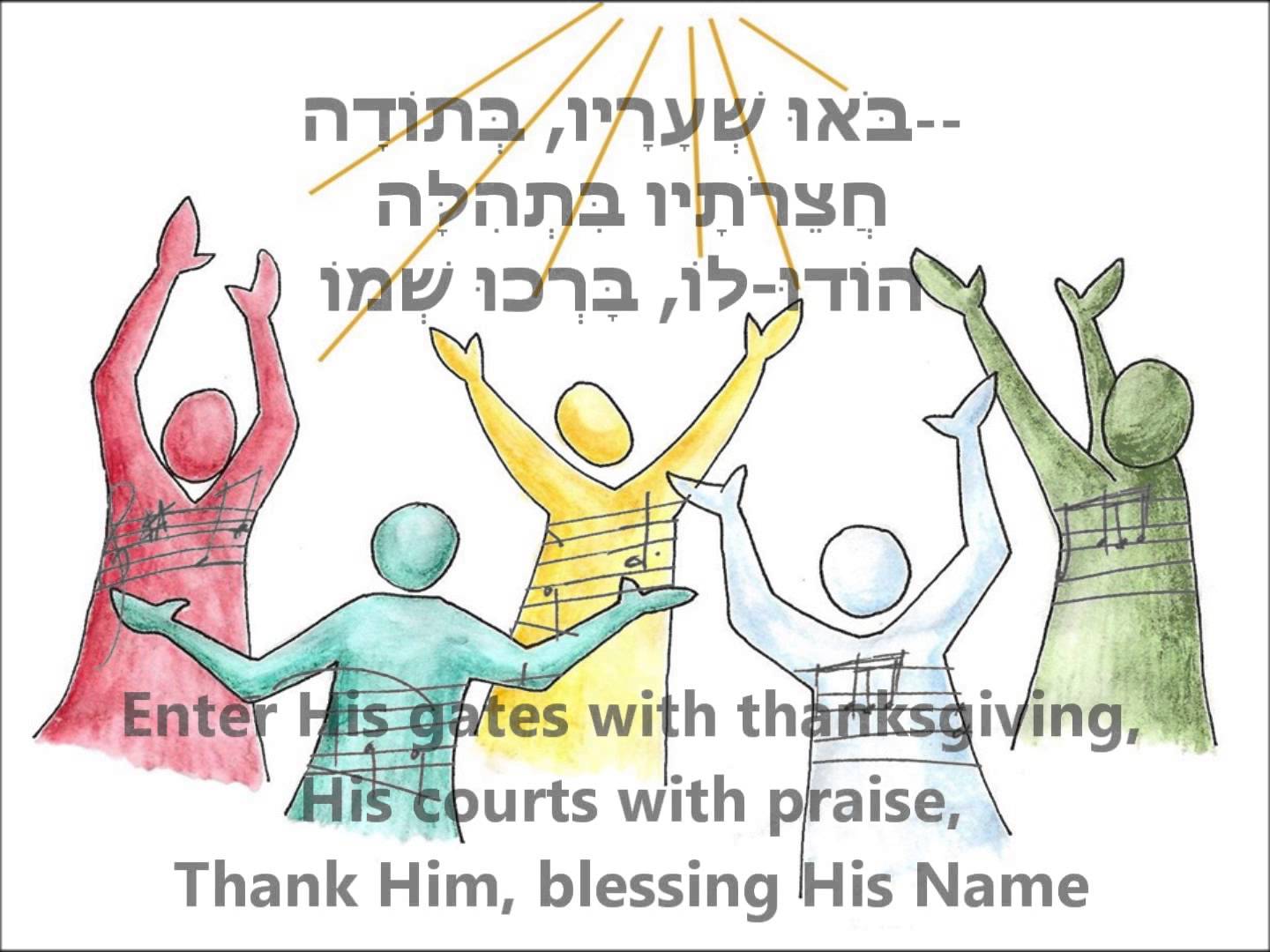The word Judah comes from the verb LeHodot, which
simply means “to thank.” In the context of the Hebrew Bible,
such thanks are synonymous not just with gratitude, but with
praise. In fact, there was a particular sacrifice called “The
Sacrifice of Thanksgiving.” In the Temple in Jerusalem, it was
called “Todah” – the noun for “Thanksgiving.”
It is interesting to note that in Modern Hebrew, to
simply say “thanks”, Israelis use the very same word (todah)
that was used in the Temple to express gratitude to God.
An old Rabbinic teaching says: "In the coming Messianic
age all sacrifices will cease, but the thank offering [todah]
will never cease." What is it about this sacrifice that makes it
stand alone in such a way that it would outlast all other
sacrifices after the redemption of the Messiah?
A todah sacrifice would be offered by someone whose
life had been delivered from great peril, such as disease or the
sword. The redeemed person would show his gratitude to God by
gathering his closest friends and family for a todah sacrificial
meal. The lamb would be sacrificed in the Temple and the bread
for the meal would be consecrated the moment the lamb was
sacrificed. The bread and meat, along with wine, would
constitute the elements of the sacred todah meal, which would be
accompanied by prayers and songs of thanksgiving, such as Psalm
116.
There are many examples in the Old Testament of people
offering todah — thanks — to God. Jonah, while in the belly of
the whale, vows to offer up a todah sacrifice in the Temple if
he is delivered (cf. Jon. 2:3-10). King Hezekiah offers up a
todah hymn upon recovering from a life-threatening illness (cf.
Is. 38). However, the best example of todah sacrifice and song
is found in the life of King David.
After David had defeated the last Canaanite stronghold,
he decided to bring the ark of the covenant up to Jerusalem. The
bringing of the ark to Jerusalem was the occasion of a great
national todah festival. The sacrifices were "peace offerings,"
and the todah was the most important and common peace offering.
All the elements of the todah were present. For example, David
offered bread and wine along with the meat of the sacrifices (1
Chron. 16:3). Most importantly, David had the Levites lead the
people in todah hymns, that is, psalms of thanksgiving (1 Chron.
16:8-36).
At this pivotal point in Israel's story, David not only
changes the location of the ark, but he also transforms Israel's
liturgy. At the todah celebration that brought the ark into
Jerusalem, David gave the Levites a new mandate — their primary
job was to "invoke, to thank, and to praise the Lord" (1 Chron.
16:4).
The importance of the todah as a backdrop for Jesus and
the Last Supper comes into sharp focus when we realize that in
Jesus' day the Greek word that would best translate the Hebrew
todah was eucharistia, which also means "thanksgiving." From the
earliest Christian sources we learn that the celebration of the
Lord's meal, or what we call the Mass, was known by Christians
as the Eucharist. After all, at the Last Supper Jesus took the
bread and wine and gave "thanks" (eucharistia) over them (Luke
22:19).
The Last Supper celebrated in the upper room is both a
Passover and a todah meal.
When Jesus takes the bread, breaks it, and declares
thanksgiving (eucharistia), He is performing the key function of
both the todah and Passover — giving thanks for deliverance. But
here Jesus is not simply looking back at Israel's history of
salvation, but forward to His death and Resurrection. In other
words, Jesus is giving thanks to the Father for His love and for
the new life to be granted in the Resurrection.
.

